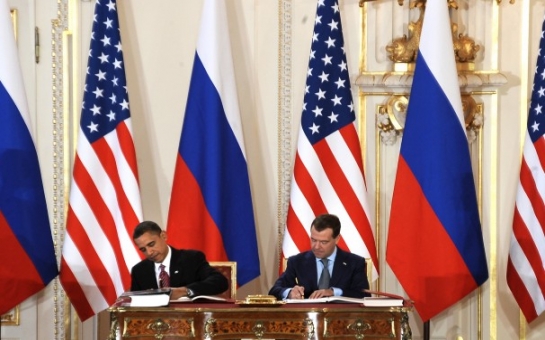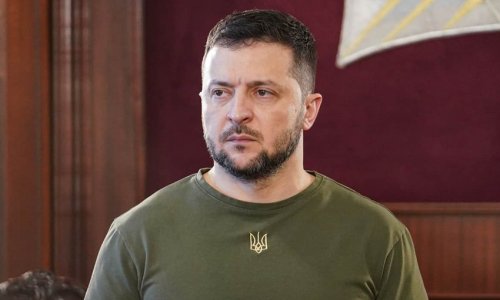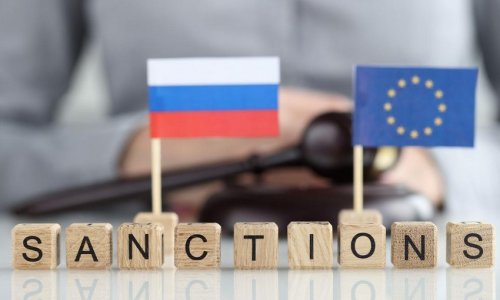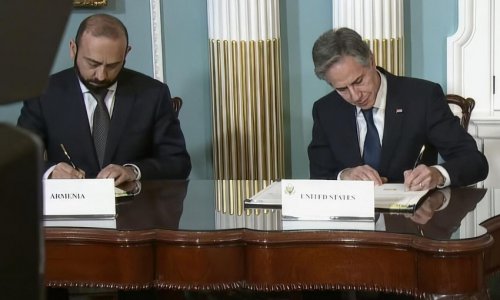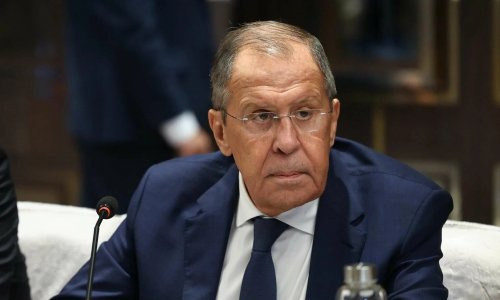With mutual trust all but gone, the United States and Russia enter a new year full of challenges that will test whether the world’s nuclear giants can salvage their relationship.
The Winter Olympics, the U.S. withdrawal from Afghanistan, the case of former National Security Agency contractor Edward Snowden, turmoil in Ukraine and Syria, and the uncharted consequences of the shale gas boom all threaten to bring new difficulties and irritants.
Things were supposed to be easier by now.
Five years ago this month, the Obama administration took office vowing to repair Washington’s tattered relations with Moscow. In a burst of optimism, it set about cultivating a productive relationship with Russia’s relatively new and seemingly forward-looking president, Dmitry Medvedev.
That plan hasn’t worked out. The White House hadn’t counted on the determination of Medvedev’s patron and successor, Vladimir Putin, to turn Russia sharply away from integration with the West.
Today, President Obama’s approach — the much-vaunted “reset’’ — has fizzled, unable to deliver on its promise to build new trust between the two countries.
What went wrong? After a 2013 in which the extent of the breach became clear, each country freely blames the other.
Moscow says Washington doesn’t heed its opinions — most recently about Ukraine — and violated the spirit of the new relationship by interfering in Russian politics. Washington denies that and points to a steady stream of anti-American pronouncements and actions by Putin’s government.
The White House insists that it hasn’t given up on Russia, but there is only so much time and attention it can devote to low-reward relationships. Putin, on the other hand, appears to discern a threat in nearly everything the United States does, and it is clear that the collapse of the reset has left little momentum for further cooperation.
The two countries do, in fact, continue to work together on Afghanistan, on space travel, on nuclear security and terrorism, to some extent on Iran and recently even on Syria. Yet there is no agenda on nuclear arms, or Europe’s future or Asia’s, or global energy policy or the Arctic.
U.S. officials were interviewed for this article on the condition of anonymity in order to speak frankly about the meager gains of the administration’s approach to Russia. They acknowledged the difficulty of the relationship but argued that engaging with Moscow is better than the alternative.
Yet the two countries have stuck to a long tradition of talking past each other. The U.S. and Russian systems have large incompatibilities that cause them to repeatedly misread each other.
“Maybe we don’t have the analytic ability to judge the capacity of the other side,” said Viktor Kremenyuk, deputy director of the Institute for USA and Canada Studies here. “Or maybe we don’t care. Maybe we just don’t listen to each other.”
U.S. officials say they worry that Putin, who receives much of his information from Russia’s Federal Security Service, is not getting a good take on U.S. attitudes or intentions.
“An insecure and destructive Russia” is not in America’s interest, wrote Celeste Wallander just before she joined the National Security Council in September as head of Russia policy.
Value systems in conflict
When Obama entered the White House five years ago, relations with Moscow were rockier than at any time since the Soviet collapse. The new administration decided to look for areas where both countries could work together, even as they acknowledged disputes on other issues.
For a while, the signs were good. But although no one knew it at the time, April 8, 2010, was the high point of the reset. It happened in the Baroque splendor of the Spanish Hall in Prague Castle, and Medvedev was searching for a phrase to capture the ebullient mood of the moment.
Obama and Medvedev had just signed the New START treaty, a pact to cut nuclear arsenals, and it was a significant result of the change in direction. Hopes of more to come were high.
“Win-win,” Medvedev called it.
That was a phrase the Americans loved to use in describing the objectives of the reset. It’s a thoroughly American notion — just as the reset was a thoroughly American initiative. But tellingly, Medvedev had had to slip into English to say “win-win.” The phrase, and the concept it describes, are utterly lacking in Russia’s political culture.
Medvedev, who seemed to get along well with Obama, may even have sincerely believed that day that a turning point had been reached where both sides could, in fact, “win.” But the man who counted was Putin, at the time Russia’s prime minister — and Putin exemplifies the your-win-is-my-loss tradition of Russian, and Soviet, diplomacy.
For the past two decades, disputes between Russia and the United States were handled on a practical level. They had to do with clashes of interest, dealings with Russia’s neighbors, the use of force, conflicts over trade — and sometimes just respect.
But Putin, now in his third term, has introduced an ideological element into the relationship for the first time since the Soviet era. Russia is taking a sharply nationalistic turn and is claiming for itself a unique set of homegrown values.
Putin is saying that Russia is no longer answerable to the West on issues ranging from gay rights to religious tolerance to the rule of law to democracy itself.
The reset got off to a good start. Less than three months after his inauguration, Obama met Medvedev in London and they agreed on an agenda focused on nuclear arms reductions, nonproliferation and other security questions.
Before two years had passed, virtually all of those items had been addressed to the satisfaction of both sides. In the specifics, the reset succeeded in exactly what it had promised.
But from the beginning, it was oversold. It would, said its backers, transform relations between Washington and Moscow.
“They got carried away,” said Fiona Hill, a Russia expert at the Brookings Institution.
“There were mysterious expectations,” said Gleb Pavlovsky, who was a Kremlin strategist in the early years of the reset, before he had a falling out with Putin.
“The incumbents made a great deal out of the reset, and there were pretty substantial accomplishments,” said James F. Collins, former U.S. ambassador to Moscow. “Both incumbents took credit for it. Well, that’s a sitting duck.”
Medvedev lost his job. Obama is now hammered for the failure of the reset — at least in its larger ambitions, which are all that anyone remembers.
The unraveling
Trouble began with the Arab Spring.
Putin was shocked at what he saw as a U.S. betrayal of Egyptian President Hosni Mubarak. Then came Libya. In early 2011, France sought a U.N. Security Council resolution allowing NATO support for the rebels.
On March 22 in Moscow, then-Defense Secretary Robert M. Gates and Wallander, his chief adviser on Russia, met with Medvedev. Russia would abstain, Medvedev told them, allowing the resolution to pass. Putin had his doubts but was willing to go along, Medvedev said, according to a person familiar with what was said but who was not authorized to discuss it.
The protracted NATO bombing campaign began and the Russians objected that they had been deceived about the West’s intentions.
“They’ve got a grievance, and there are some grounds for that grievance,” said P.J. Crowley, who was the State Department spokesman. Within the Pentagon, some officials warned that Russia would be highly unlikely to allow a similar resolution to get through the United Nations again — and events in Syria proved that to be the case.
Putin also thought that every American move in the Middle East made the situation worse. Russian officials were keenly aware that after abstaining in the United Nations, their concerns were of no interest to Washington. If the reset was to be the basis of a broader detente, they thought, they should be listened to.
The U.S. attitude, as summed up by Mark N. Katz, an expert on Russia and the Middle East at George Mason University, was this: “Even if they didn’t like it, what were they going to do?”
Putin’s announcement, as the Libya campaign was still unfolding, that he intended to return to the presidency caught the White House flat-footed. Obama, disdainful of Putin, hadn’t even met with him since July 2009. That, said Collins, wasn’t very smart.
“I don’t think anyone told him: ‘Boss, this guy may be back. You may have to deal with him,’ ” Collins said.
The Medvedev-Putin “tandem,” dreamed up originally by Pavlovsky, had been very convenient for foreign governments, Hill said. They could point to Russia under Medvedev as a place headed for reform and downplay its corruption, failures of justice and other unsavory shortcomings.
“Obama made a bigger bet on Medvedev than he should have,” said Fyodor Lukyanov, who as editor of a foreign policy magazine has a good sense of Kremlin thinking.
Putin, now back in the Kremlin, hasn’t been reluctant to push hard.
“What has Russia got? It’s got chutzpah. That’s its greatest strategic reserve,” said Mark Galeotti, an expert on Russian security services at New York University.
For too long, the Obama administration wavered between pursuing a moral policy toward Russia or a pragmatic one, he said. “The White House wanted a bit of both, and as a result got neither.”
Separate directions
Events in Russia finally took control of the agenda. In December 2011, a rigged election brought out tens of thousands of demonstrators and prompted a scolding from Secretary of State Hillary Rodham Clinton. It invigorated an effort in Congress to punish Russian officials connected to the case of Sergei Magnitsky, a whistleblower who died after being thrown in jail.
The Russian reaction was intense. Both issues reflect directly on the legitimacy of Putin’s political structure, Kremenyuk said, and the Kremlin understands this to be its greatest vulnerability.
Anti-American rhetoric soared. Russia expelled USAID, forced Radio Liberty off the AM dial and frustrated U.S. financing of advocacy groups. It began a harassment campaign against U.S. Ambassador Michael A. McFaul. The response to the Magnitsky Act, signed by Obama in December 2012, was a law banning adoptions of Russian children by Americans.
Collins described the Magnitsky Act as “the stupidest thing you could do” and the Russian response as “even stupider.”
The past year has brought Russia’s refusal to hand over the fugitive Snowden, followed by Obama’s cancellation of a summit meeting with Putin, then unexpected cooperation on Syria’s chemical arms. The latest crisis in Ukraine — rooted in Russia’s insistence on limiting that country’s ties to the West — has stoked old tensions.
The United States and Russia, in any case, are heading in separate directions — or wish they could. The coming year brings a slew of challenges that will force the two nations to engage, even if at arm’s length and with a palpable lack of enthusiasm. Putin acknowledged as much in a New Year’s message this week.
“But,” Lukyanov said, “there’s no way to have a long-term, interest-based relationship. Americans are too self-centric.”
(http://www.washingtonpost.com/)
ANN.Az

